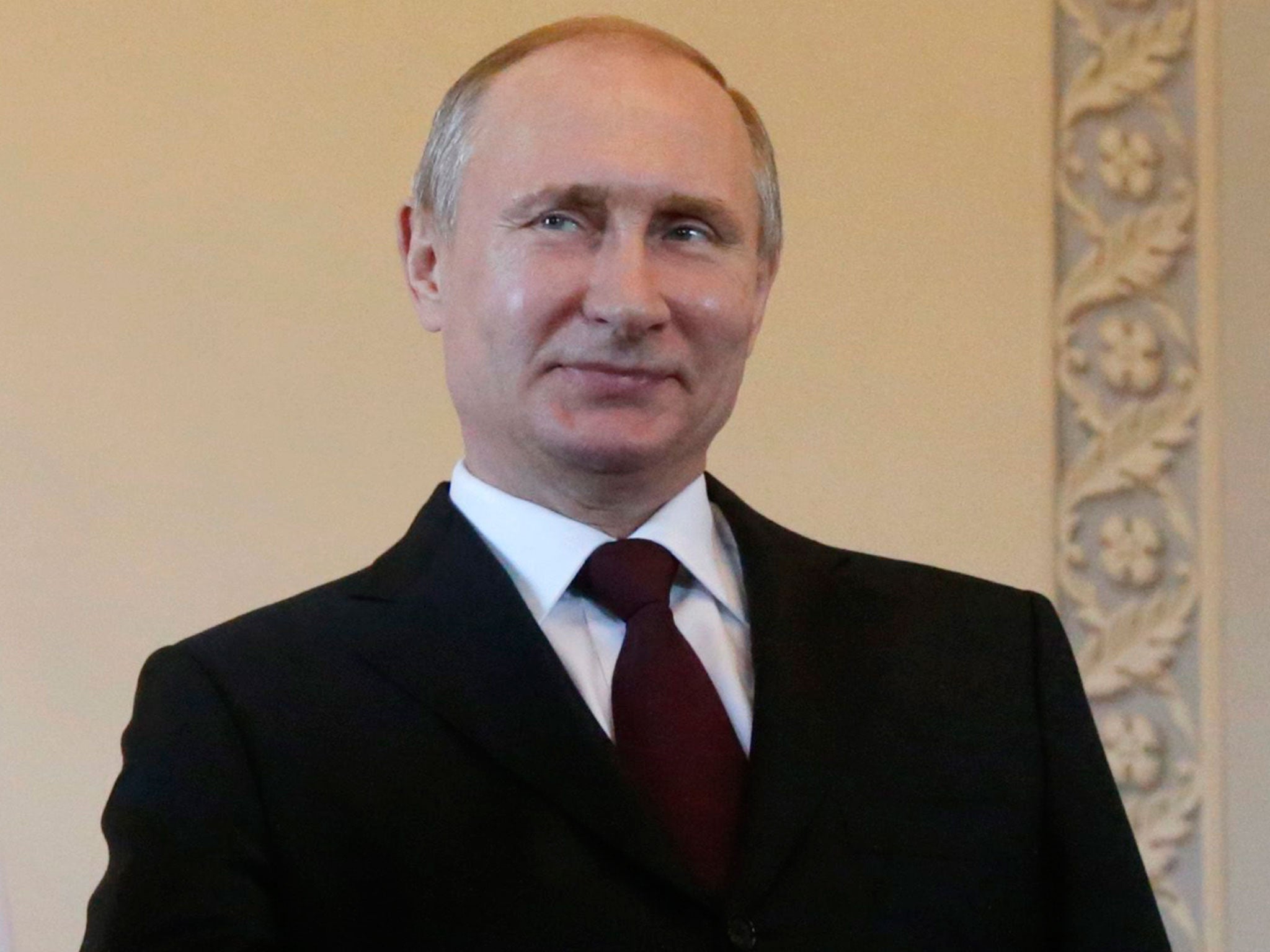I was a victim of a Russian smear campaign – I understand the power of fake news
A couple of years ago, I was the focus of a smear campaign, elements of which could have been lifted out of a spy novel

We were told in June that the Democratic National Committee had been hacked by Russians. We were told in October that material subsequently passed on to WikiLeaks came from the same source and that President Obama was considering a response.
Numerous articles were written about these leaks and about Donald Trump's many Russian connections. And yet no one was really outraged until now. Why? I have a theory: until you have seen for yourself how 21st-century disinformation works, you laugh at the very idea of it. Once you have understood its power, you stop laughing.
If I was slightly ahead of the curve, it's because - like everyone who ever wrote critically about Russia - I saw early on how it worked. A couple of years ago, I was the focus of a smear campaign, elements of which could have been lifted out of a spy novel. In the wake of the invasion of Crimea, I was writing quite a bit about Ukraine, when nasty little articles about me started appearing on Russia-based websites.
The technique was the same as that used by people who later dressed up the stories from the emails of the Democratic National Committee and John Podesta: mix truth and lies - my book contract and royalties were described as mysterious income from questionable sources - make ludicrous claims, pass on the lies to other Russian-backed websites, and then pass it on again.

There was no way to correct the stories - to whom would I complain? - and as I'm not running for president, frankly who cares? But it was eye-opening to watch the stories move through a well-oiled system, one that had been constructed for exactly this sort of purpose. Eventually, the articles about me were echoed or quoted in a dozen places: on quasi-respectable websites with ties to Russian business, on Russia Today, on Ron Paul's Institute for Peace and Prosperity website. The trickle continued until months later - I genuinely don't know why - WikiLeaks in November 2015 tweeted one of the articles to its 4 million followers.
But I learned a lot. As I watched the story move around the Web, I saw how the worlds of fake websites and fake news exist to reinforce one another and give falsehood credence. Many of the websites quoted not the original, dodgy source, but one another. There were more of them than I'd realized, though I also learned that many of their "followers" (maybe even most of them) are bots - bits of computer code that can be programmed to imitate human social media accounts and told to pass on particular stories.
In my case, it didn't matter, because nobody I know cared about the stories. But during the U.S. election campaign, with millions and millions of bots at work, hundreds of fake stories in circulation and many volunteers joining the troll factories and botnets, maybe Kremlin-generated lies and Kremlin-created echo chambers did make a difference. The same techniques were at work as in my case: take a "truth" revealed in a hacked email, twist it into a scandal, pass it on via fake-news sites, troll factories and botnets, and see whether it sticks.
The Russians understood the power of such networks to fool people before anybody else. They also understood that the global information space, accessible to all, offered a cheap way for an impoverished ex-superpower to meddle in other countries' politics. But of course there was nothing to stop others from using the same techniques. Trump clearly did so, and the Russian propaganda state assisted him.
But this brings us to a deeper question, one that takes us beyond this ugly campaign and the possible Russian role in it: why are Americans so vulnerable to fake news, even when generated by a hostile foreign power? Why do they consume it and pass it on?
The fault is partly that of the Republican Party, which told people for years to hate and fear "Washington" and has now created a constituency that actually prefers information generated by the Kremlin or white supremacists. The problem also lay with Hillary Clinton, who was hardly a trusted figure to begin with.
But it is also true that we are living through a global media revolution, that people are hearing and digesting political information in brand-new ways and that nobody yet understands the consequences. Fake stories are easier to create, fake websites can be designed to host them, and social media rapidly disseminates disinformation that people trust because they get it from friends. This is true not only in the United States and Europe but around the world. Half of all Filipinos are active Facebook users, and millions of them shared the scare stories and fake news that helped elect President Rodrigo Duterte, a populist who claims he has personally carried out nonjudicial executions.
There are precedents. The printing press, praised by Martin Luther as "God's highest and extremest act of Grace," led to the Reformation, the Counter-Reformation and a century of religious wars. The invention of radio made possible the rise of Hitler and Stalin, both of whom understood the propaganda value of the new medium before anyone else. Eventually equilibrium was reached, and someday we will reach equilibrium, too.
(c) 2016, The Washington Post
Join our commenting forum
Join thought-provoking conversations, follow other Independent readers and see their replies
Comments
Bookmark popover
Removed from bookmarks